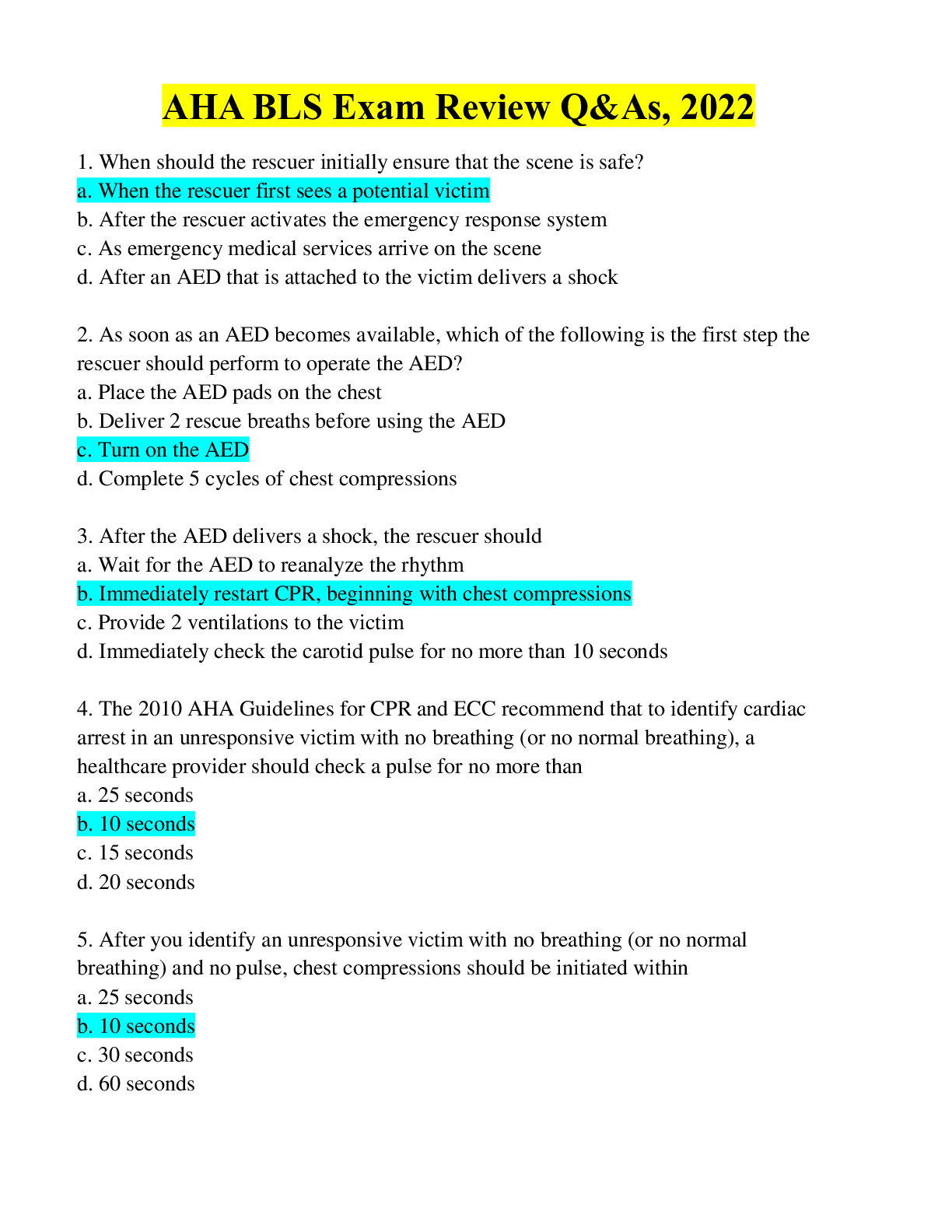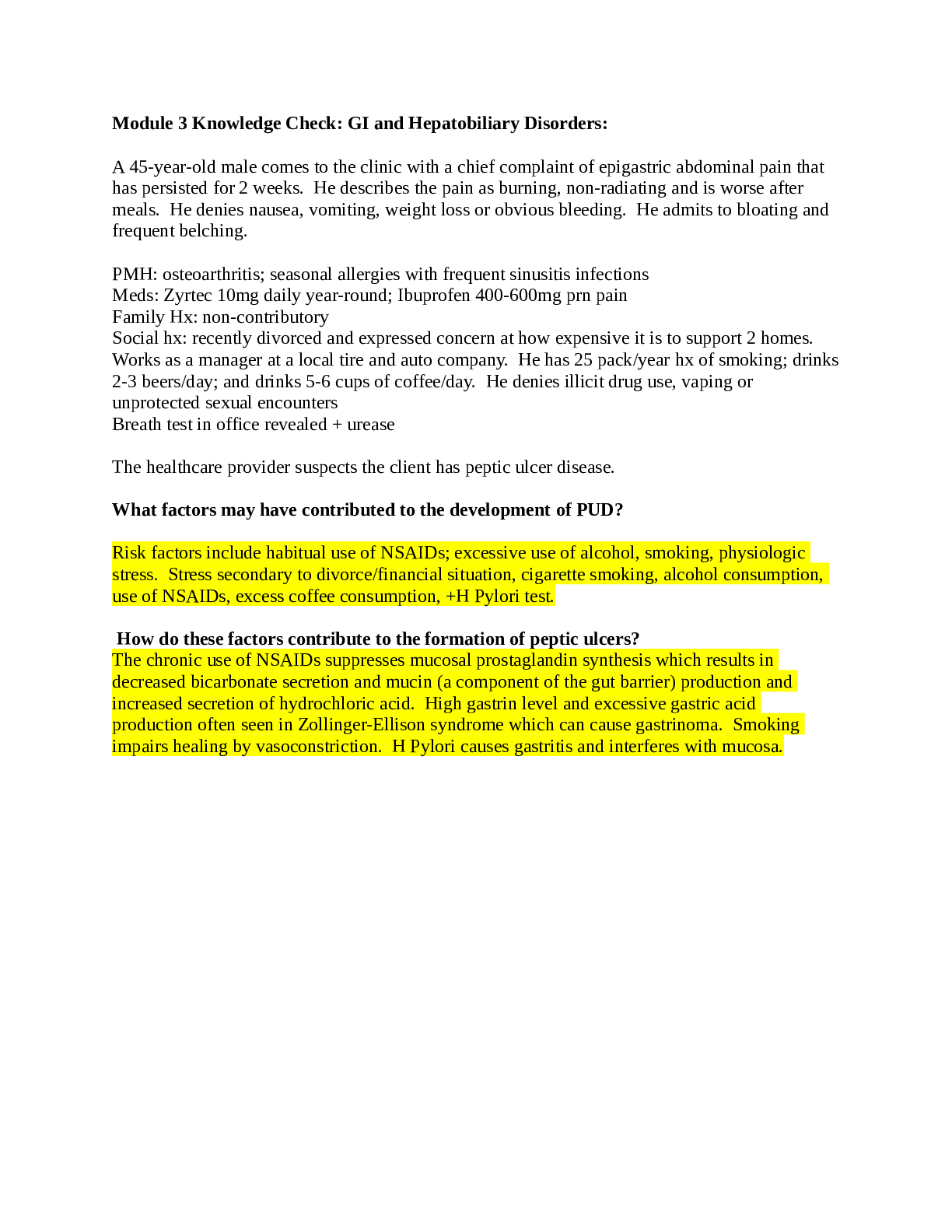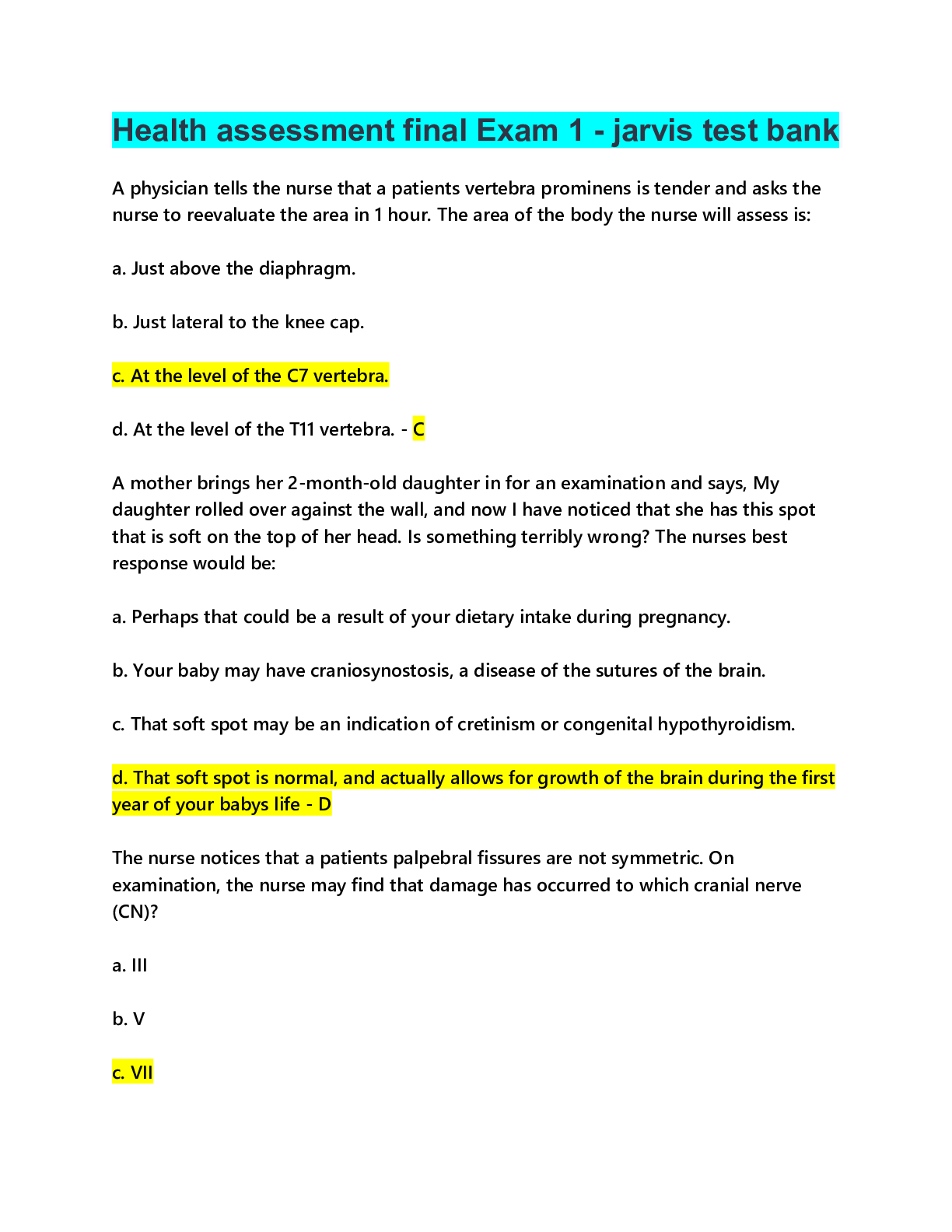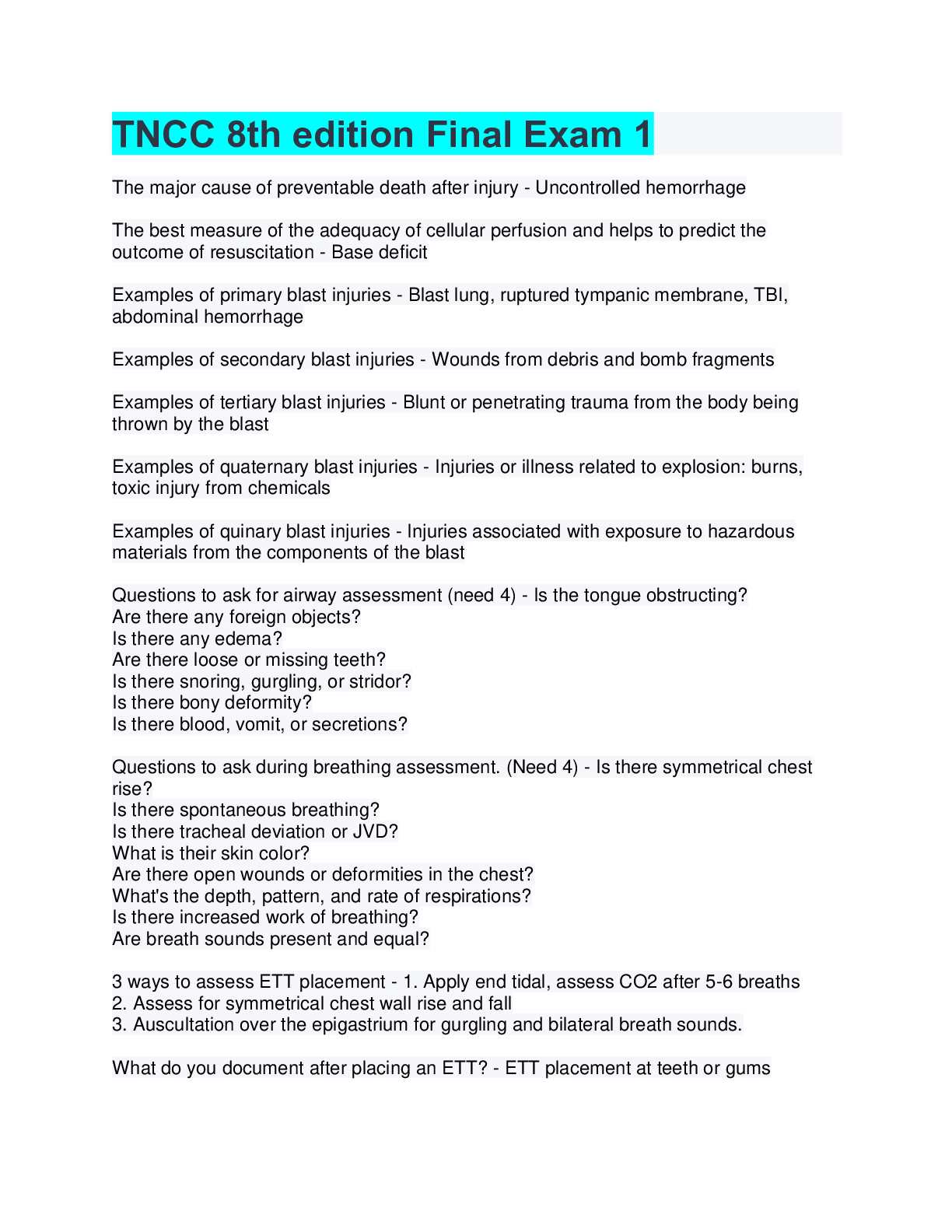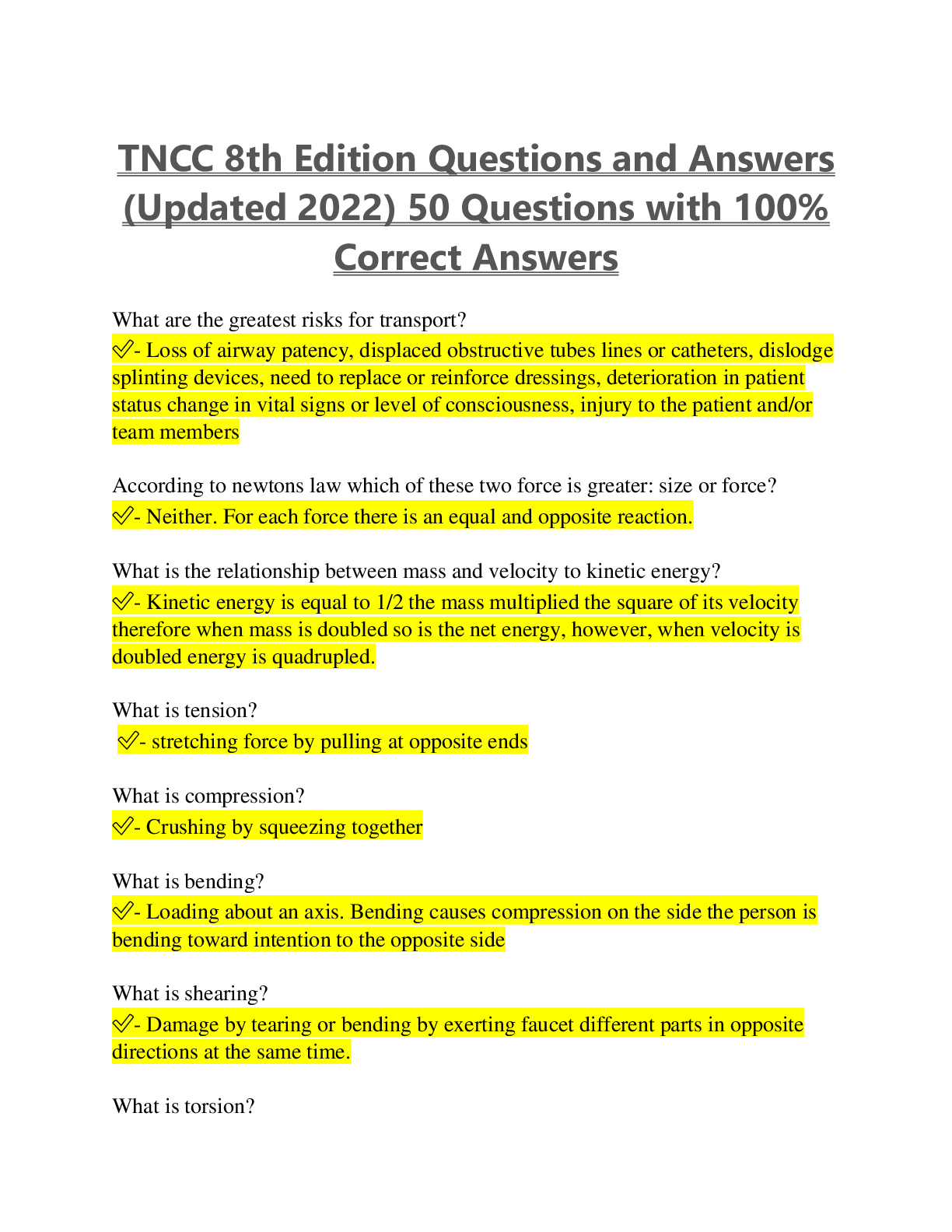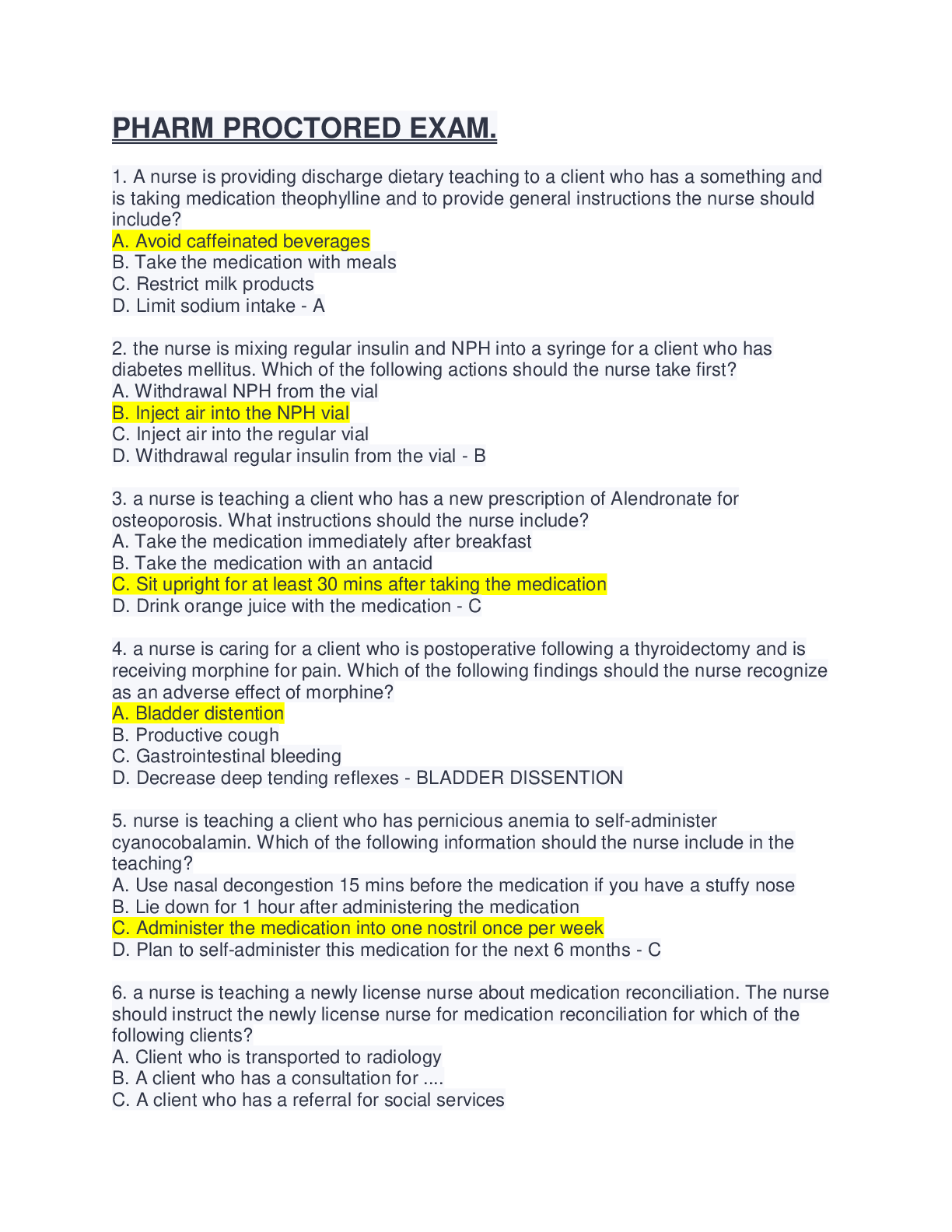*NURSING > QUESTIONS & ANSWERS > NR566 Week 3 Quiz, discussions /NR566 Week 3 Discussion and QUIZ, (answered;100% ) Latest summer 202 (All)
NR566 Week 3 Quiz, discussions /NR566 Week 3 Discussion and QUIZ, (answered;100% ) Latest summer 2020/2021
Document Content and Description Below
NR566 Week 3 Quiz Question 1 1 / 1 pts Diagnosis of heart failure cannot be made by symptoms alone because many disorders share the same symptoms. The most specific and sensitive diagnostic test fo... r heart failure is: Complete blood count, blood urea nitrogen, and serum electrolytes that facilitate staging for end-organ damage. Chest x-rays that show cephalization and measure heart size. Two-dimensional echocardiograms that identify structural anomalies and cardiac dysfunction. Measurement of brain natriuretic peptide to distinguish between systolic and diastolic dysfunction. Question 2 1 / 1 pts Because primary hypertension has no identifiable cause, treatment is based on interfering with the physiological mechanisms that regulate blood pressure. Thiazide diuretics treat hypertension because they do which of the following? Deplete body sodium and reduce fluid volume. Decrease the production of aldosterone. Increase renin secretion. Decrease blood viscosity. Question 3 1 / 1 pts A patient presents to the clinic with complaint of a persistent, dry and nagging cough that begin shortly after starting lisinopril. What action should the clinician take? Discontinue the medication and start losartan (Cozaar). Discontinue the medication and start clonidine (Catapres). Continue the medication and refer the patient to a pulmonologist. Continue the medication and advise the patient that this side effect will resolve in a few weeks. Question 4 1 / 1 pts Compelling indications for an ACE inhibitor as treatment for hypertension based on clinical trials includes: Post myocardial infarction. Dyslipidemia. Pregnancy. Renal calculi. Question 5 1 / 1 pts One of the three types of heart failure involves systolic dysfunction. Potential causes of this most common form of heart failure include: Myocardial ischemia and injury secondary to myocardial infarction. Inadequate relaxation and loss of muscle fiber secondary to valvular dysfunction. Increased demands of the heart beyond its ability to adapt secondary to anemia. Slower filling rate and elevated systolic pressures secondary to uncontrolled hypertension. Question 6 1 / 1 pts Which of the following medications require monitoring of pulmonary and thyroid function tests every 6 months? Procainamide (Pronestyl). Amiodarone (Cordarone). Mexilitine (Mexitil). Flecainide (Tambocor). Question 7 1 / 1 pts A 59-year-old male has poorly controlled hypertension. He is currently taking furosemide (Lasix) 40mg daily for congestive heart failure. When choosing to add another antihypertensive, which of the following should the clinician avoid due to its strong negative inotropic effect? Losartan (Cozaar). Carvedilol (Coreg). Amlodipine (Norvasc). Verapamil (Calan). Question 8 1 / 1 pts The clinician has decided to prescribe an angiotensin-converting enzyme inhibitor (ACEI) for a patient with hypertension. The patient informs the clinician that she is "really bad at taking medication more than once per day". Which of the following medications requires more than once daily dosing and therefore should be avoided? Captopril (Captoten). Benazapril (Lotensin). Lisinopril (Zestril). Enalapril (Vasotec). Question 9 1 / 1 pts Omega 3 fatty acids are best used to help treat which of the following? High total cholesterol. Elevated HDL. High triglycerides. Reduced LDL. Question 10 1 / 1 pts The clinician is prescribing an angiotensin-converting enzyme inhibitor (ACEI) for hypertension. Which of the following should be checked at baseline and repeated after the first week of therapy? Liver function tests. Thyroid function tests. Platelets. Serum creatinine and potassium. The first-line medications for the treatment of HTN are CCB, thiazides, ACEIs, or ARBs. What would be the preferred choice for someone who has HF with reduced EF? Thanks! Define different hypertension classes (normal, elevated, stage 1 & stage 2) according to each guideline. What are the thresholds for initiating treatment? What are the treatment goals? (Hint: there may be multiple treatment goals based on certain populations such as diabetics) What medications are recommended to treat hypertension in the African American population? Discuss why one set of guidelines might be used over the other (i.e., is one superior to the other ?) [Show More]
Last updated: 1 year ago
Preview 1 out of 12 pages
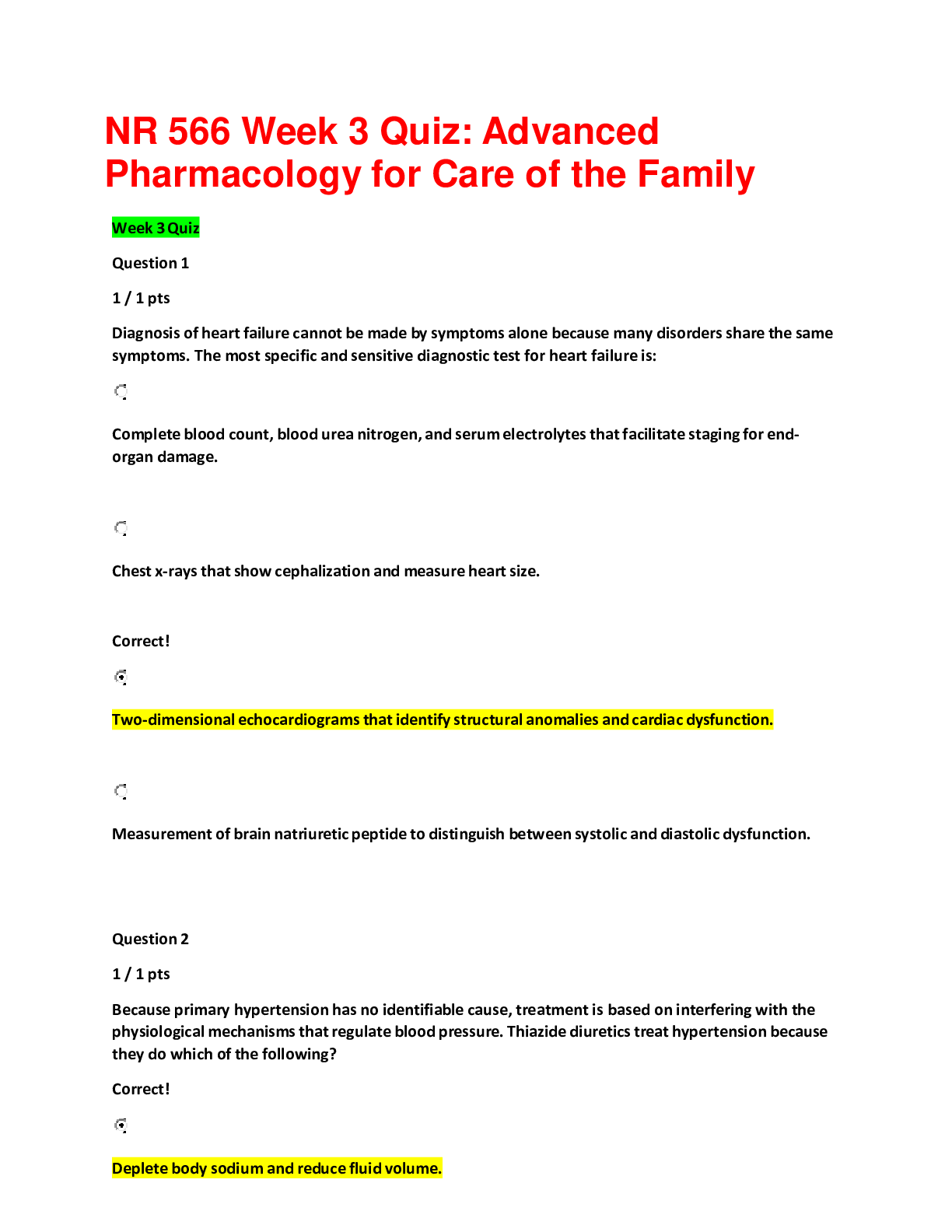
Buy this document to get the full access instantly
Instant Download Access after purchase
Add to cartInstant download
We Accept:

Reviews( 0 )
$16.00
Document information
Connected school, study & course
About the document
Uploaded On
Feb 01, 2021
Number of pages
12
Written in
Additional information
This document has been written for:
Uploaded
Feb 01, 2021
Downloads
0
Views
52

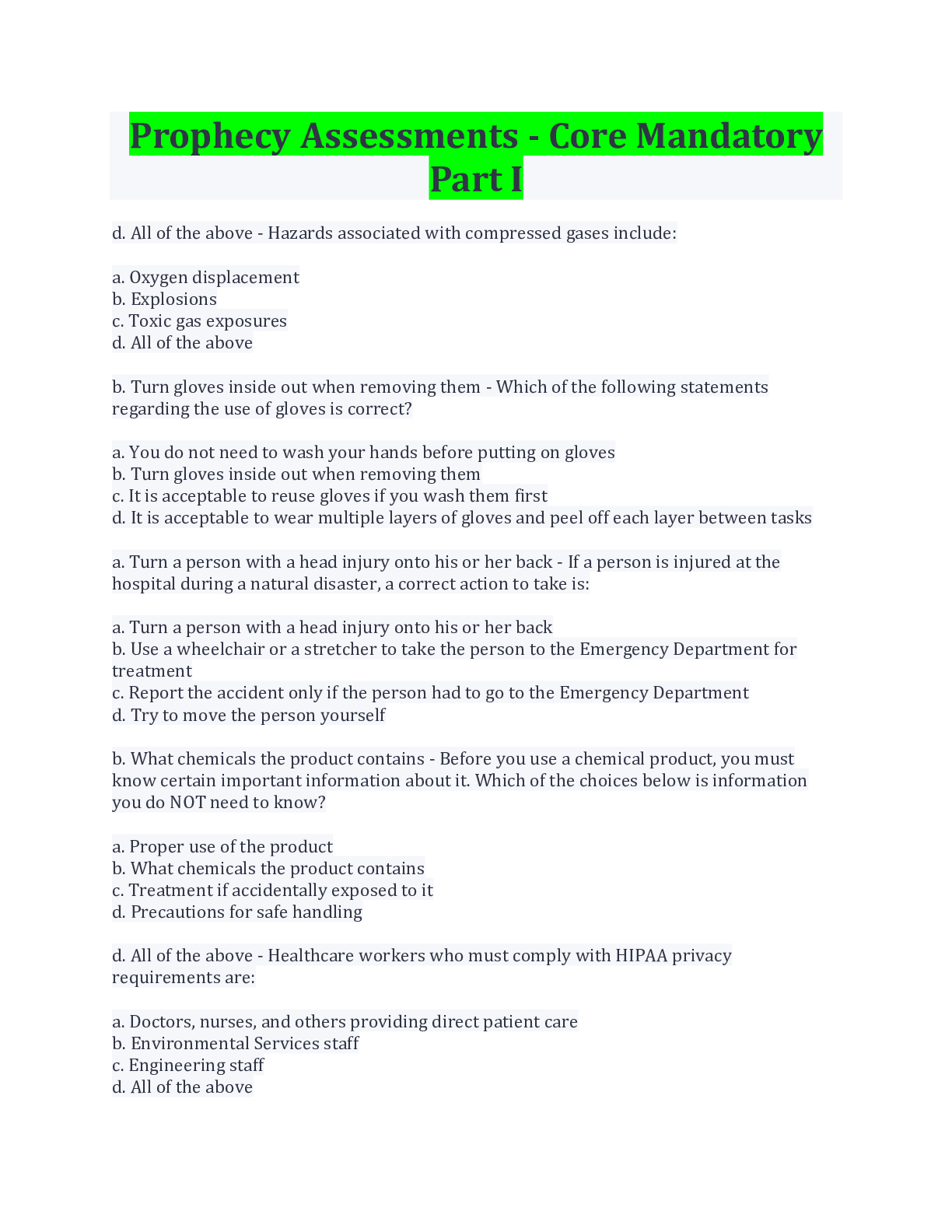
.png)
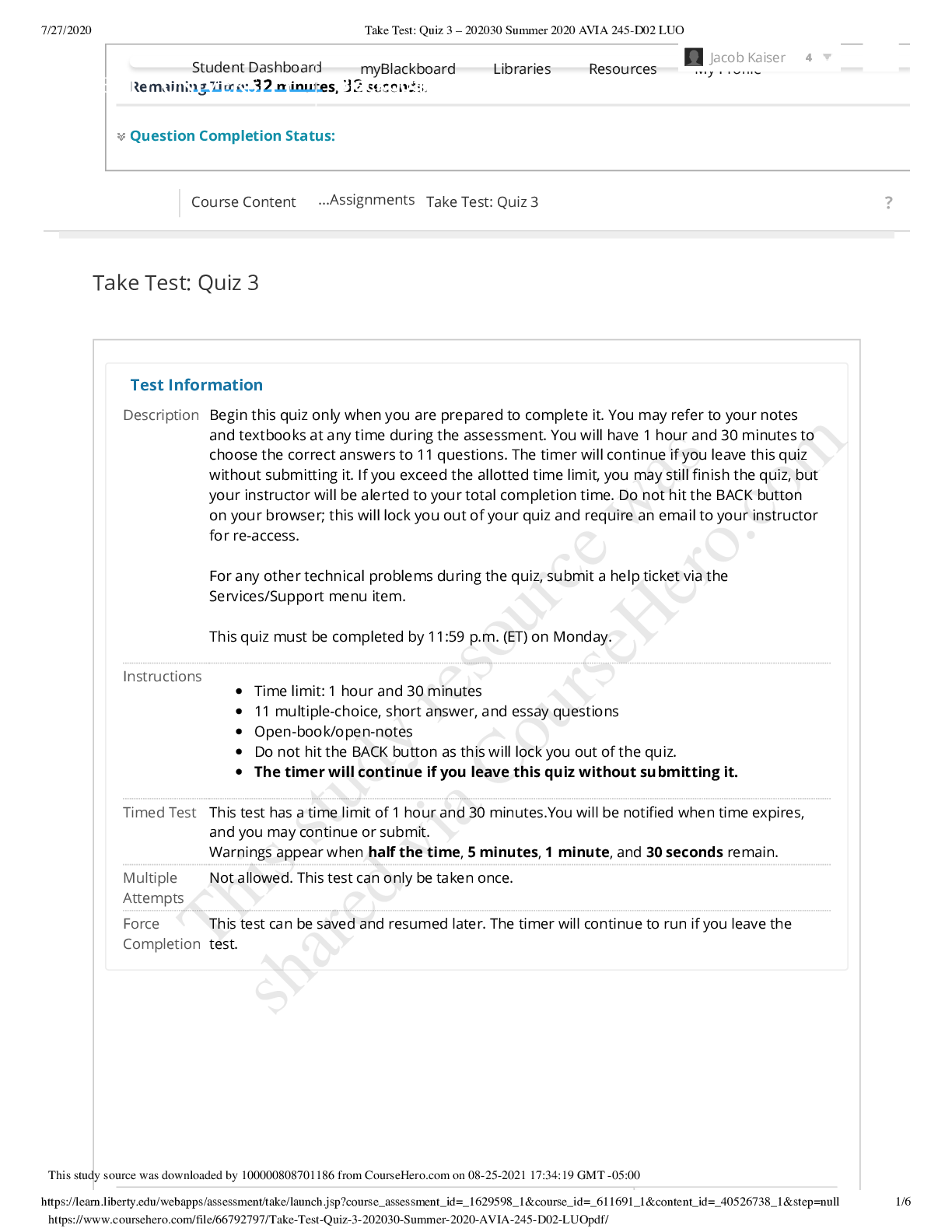
.png)

